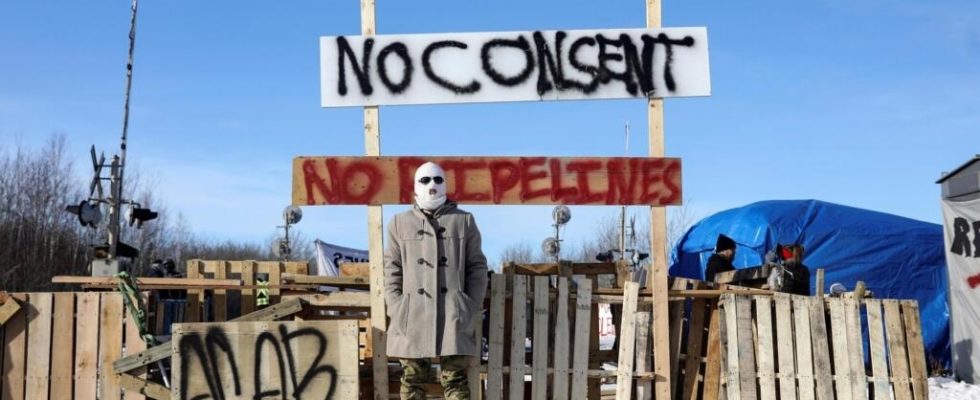Amnesty International is calling on a Canadian court not to try a person from an indigenous nation whose trial begins on Monday, October 30. Part of the Wet’suwet’en community opposes the passage of a gas pipeline through their territory in British Columbia, in the west of the country. Canadian police have arrested several opponents who will face court later in November. For Amnesty, indigenous populations should not be judged for defending their rights.
1 min
With our correspondent in Montreal, Pascale Guéricolas
The facts date back to November 2021. On several occasions, Canadian police have arrested members of the Wet’Suwet’en nation and their sympathizers. The latter contested the route of a gas pipeline transporting gas across British Columbia, because this infrastructure passed near salmon rivers.
According to Amnesty International, the Wet’Suwet’en were unable to propose an alternative route for the pipeline. A breach of the United Nations declaration on the rights of indigenous peoples, although signed by Canada, which requires that their point of view be taken into account. The organization therefore asks the court not to judge those who defend their land.
France-Isabelle Langlois, director of Amnesty International Canada francophone: “ Members of the Wet’suwet’en indigenous nation who oppose the route have the right to say so and demonstrate it, and they must be able to do so without suffering violence and intimidation from anyone, including the RCMP. »
The action taken by the RCMP, the Canadian police, against members of this nation is also the subject of an Amnesty International report to be published on December 11.
Read alsoCanada: the construction of a gas pipeline provokes discontent among indigenous peoples
